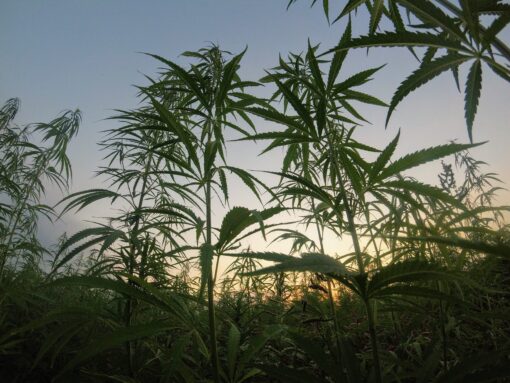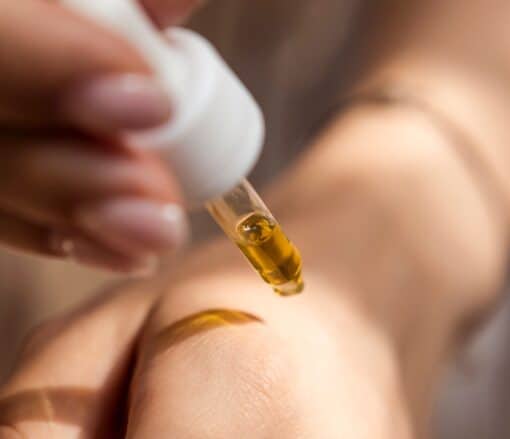Hemp Oil: A Comprehensive Guide
People are using CBD or hemp oil for all the conceivable reasons these days, from skin health to managing anxiety. There are even some CBD-approved medications like to control resistant forms of epilepsy in children or manage symptoms of multiple sclerosis.
Along with this, one should not forget that people also use cannabis for recreation.
There are so many different terms used to describe various cannabis products that it may become utterly confusing for consumers. Sometimes it becomes almost impossible to understand the difference between the two products.
So, is CBD oil and hemp oil the same? Well, maybe, but usually not. So, how to know when CBD oil and hemp oil are the same and when they indicate quite a different product? This comprehensive guide will clarify all the concepts so that consumers can always choose the right kind of products.
To start with, one must know that both hemp and marijuana are plants of cannabis species. However, marijuana is high in mind-altering THC and thus used for recreation or to produce licensed medications. Its cultivation is highly regulated.
On the other hand, hemp is a variety of cannabis low in THC. It is mainly used for industrial purposes, producing fiber, animal feed, and legal CBD oil. All the parts of this plant are usable. It means that both hemp oil and CBD oil are from legally cultivated hemp.
What Is Hemp Oil & How Does it Differ from CBD Oil?
Since both hemp oil and CBD oil are from the legally cultivated hemp (low THC cannabis species), it may be difficult to understand the difference between them.
So, let’s clarify the things: CBD oil is extracted from the hemp plant’s stalk, flower, and leaves. In contrast, hemp oil is from hemp seeds only.
Hemp seeds are naturally free from THC and CBD. Therefore, it means that hemp seed oil does not contain any CBD at all. However, to confuse the consumers, many online sellers intentionally omit the word “seed” and thus mention the term hemp oil. Hence, it is vital to understand that usually, hemp oil and hemp seed oil are the same things and are CBD-free products.
On the contrary, if the oil is from other parts of the hemp plant like leaves, flowers, or stalks, it will be rich in CBD and other cannabinoids, thus called CBD oil.
So, consumers need to remember that CBD oil contains CBD and may or may not contain other cannabinoids. However, as a rule, hemp oil does not contain any CBD until or unless the product explicitly mentions that it contains CBD.
So, if you search amazon.com for hemp oil and find products containing 500 000 mg or 1 000 000 mg of hemp oil, it merely means that it contains just a hemp oil and does not contain any CBD. These manufacturers intentionally write the amount of hemp seed oil in mg (milligrams) to confuse the consumers. So that consumers may perceive it as a product containing massive amounts of CBD, so beware of such products.
The moral of the story is that, when buying any CBD product, always make sure that the product explicitly mentions the CBD amount in the pack or each serving.
What Is Hemp Oil Used For?
So, hemp oil generally means hemp seed oil that is free from CBD. Hence the question arises why anyone would use it anyway?
Well, there are multiple reasons to use hemp oil. It is good to visualize hemp oil as an entirely different product from CBD. Hemp oil is appreciated mainly due to its content of omega-3 fatty acids. Studies show that it mostly contains polyunsaturated fatty acids, which are omega-6 and omega-3 in a 3:1 ratio. This ratio is quite good for health, lowering inflammation and helping reduce the risk of metabolic disorders.
Additionally, it is exceptionally rich in antioxidants, especially various tocopherols. It is especially rich in γ-tocopherol, which may further contribute to its metabolic health benefits.
It means that hemp oil, like fish oil or krill oil, is good for heart health, lowering cholesterol, improving mental health, preventing neurodegenerative disorders, boosting eye health, slowing down aging, reducing inflammation, etc.
One may consider it an excellent, vegan-friendly oil rich in omega-3 fatty acids and antioxidants.
Is Hemp Oil Legal?
It is essential to understand that hemp oil, which means hemp seed oil is a completely different product from CBD oil. It would be good to visualize hemp oil as a healthy, vegan-friendly, edible oil. Thus, it does not share many traits with CBD oil, except that both are extracted from the same plant but from very different parts of the plant.
Europeans have traditionally not consumed CBD or various parts of the cannabis plant as a part of a regular diet. Thus, regulatory bodies classify CBD and related products as novel food. Something Europeans started consuming after 15 May 1997.
On the contrary to CBD and related products, Europeans have used hemp industrially for ages, and they have also consumed hemp seed oil. Virgin hemp seed oil is not a new food product for Europeans, and it has been a part of the regular diet in some parts of the continent.
Since hemp oil is neither novel to Europeans, it is naturally free of CBD and THC, which means that it is entirely legal to import, produce, sell, and consume hemp seed oil in the EU. Therefore, it does not pose any health threat to the population and is a healthy food product with many health benefits.
Does Hemp Oil Contain CBD?
In practice, hemp oil is just a short term used for hemp seed oil, which is naturally CBD free. It does not contain any cannabinoids. Like any healthy vegetable oil, it is rich in polyunsaturated fats having an excellent ratio of omega-6 and omega-3 fatty acids, high content of tocopherols, and other antioxidants.
It may contain CBD in traces only due to cross-contamination. Or it may contain CBD if it has been added to it intentionally. Thus, if hemp oil does not mention the total CBD content, it means that it is CBD-free.
It is true that CBD oil is also extracted from hemp, but to differentiate the two products, oil extracted from hemp stalk, leaves, and flowers is not called hemp oil and is instead called CBD oil.
Moreover, it is worth understanding that extracting oil from leaves and stalks is completely different from seed oil extraction. One may even extract seed oil through cold pressing or applying pressure. However, extracting oil from other plant parts needs the use of special techniques like CO2 extraction, hydrocarbon extraction, and more.
Does Hemp Oil Cause Weight Gain?
If someone uses hemp oil as a health supplement, it is not likely to cause weight gain, as one would consume only a few drops or milliliters of it a day.
However, quite like other healthy vegetable oils, hemp oil is safe to consume in more significant amounts. It is worth understanding that oils have twice more calories per gram than carbs or proteins. It means that consuming any oil in large quantities will ultimately lead to obesity.
Moreover, it is worth knowing that although hemp oil is a good source of omega-3 fatty acids, it is also rich in omega-6 fatty acids, which are more likely to cause weight gain when consumed in larger amounts.
How To Extract Hemp Oil from Seeds
It is pretty simple as hemp oil is extracted like any other vegetable seed oil with the help of cold pressing. It simply means applying massive pressure on the seeds to extract oil. The whole process is done at room temperature.
What is left of the seed after oil extraction, hemp cake, is also used to create food supplements and animal feeds. It is because hemp cake is rich in protein, dietary fiber, and other nutrients.
Extracting oil from the seed is much simpler than CBD oil extraction from leaves or stalks. It is because seeds, once dried, mainly contain oil and have a very low moisture level. Leaves and stalks, on the other hand, had a low oil content and high moisture. Moreover, one needs to separate CBD from other oils. Thus, requiring the use of more specific techniques like CO2 extraction or hydrocarbon extraction, and so on.
To conclude, though both CBD oil and hemp oil are by-products of the same plant, nevertheless, they are entirely different products. Thus, manufacturers extract CBD or other cannabinoids mainly from cannabis plant leaves, stalks, and flowers. However, the source of hemp oil is the seeds of the plant.
Moreover, hemp oil or hemp seed oil is naturally CBD and THC free. Hemp oil is mainly a source of essential fatty acids like omega-3 fatty acids and thus has a very different kind of health benefits when compared to CBD oil. Additionally, extracting hemp oil, selling, and importing it is it is legal almost in all the nations. Unlike CBD oil, hemp oil is not a novel food, which means that starting a hemp oil business does not require much documentation.
If you want to know more about hemp seed oil, contact us.


